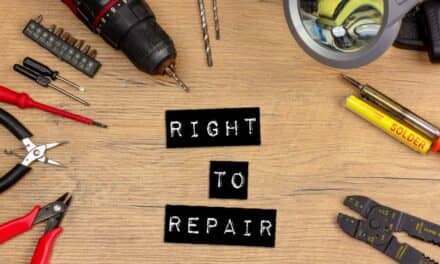The U.S. FDA’s public workshop to distinguish between medical device servicing and remanufacturing officially kicked off at the Hilton Washington DC North Gaithersburg Hotel in Gaithersburg, Md., on December 10—and the HTM industry anxiously awaits the outcome of the two-day event. Fortunately, 24×7 Magazine was given an inside look at it.
The workshop, titled “Medical Device Servicing and Remanufacturing Activities,” will help the agency gather feedback for a future draft guidance, FDA officials reveal—something discussed in the agency’s May servicing report. During Monday’s open session, Joshua Silverstein, PhD, a regulator advisor for the FDA, explained that differentiating between “servicing” and “remanufacturing” is more than just semantics, however.
“We know that independent service organizations, hospital facilities, and original equipment manufacturers perform excellent servicing and maintenance,” Silverstein told workshop attendees. “But we also know that there are other aspects of medical device servicing for which we can work together and do better. One of those areas pertains to clarifying the difference between servicing and remanufacturing. FDA makes an important distinction between these activities because remanufacturing can have a significant impact on a device—and, accordingly, the requirements are different.”
Specifically, Silverstein told workshop attendees, the FDA has seen entities “override “certain safety features on a device”—something the agency deems remanufacturing, not servicing. “And based on the examples and comments that have been provided to the agency over the last two years through our public docket, through discussions, and through our workshops, it’s clear that there’s some confusion about the distinction between these two activities,” he added. That’s why clarification is essential.
During Monday’s workshop, industry insiders shared their views on the subject in breakout sessions and panels. After all, FDA officials said in October, finding ways medical device servicing and remanufacturing stakeholders can work together is a key goal of the workshop—and it’s something many in the industry want.
Binseng Wang, a member of 24×7 Magazine’s editorial board and panelist representing the American College of Clinical Engineering at the workshop, isn’t so sure, however. Speaking to 24×7 Magazine exclusively, Wang says the workshop is just starting to explore the possibility of such collaboration—something some manufacturers are open to and others seem to resist.
On Tuesday, December 11, he says, personnel at the workshop will continue to discuss the path to collaboration and see if there is any common ground, after all. In other words, stay tuned and come back to 24×7 Magazine’s news section to hear what happens on day two of the FDA’s public workshop.






I think it’s time there was a list of approved and not approved 3rd party service companies as well as remanufacturers. if any company is bypassing safety features of a device, they should be held criminally liable when that device fails and harms a patient or user. UL specifically tests device’s safety features so that the end user can trust their home won’t burn down in the middle of the night bc of an unsafe device, a patient won’t be hurt, nor the user from a medical device that fails to protect. The major component of our careers is the safety and well being of our fellow human beings. Thats why we perform cyclical inspections. For anyone to bypass a safety feature is not only negligent, it is criminal.
Every 3rd party should have to apply for an approved status via background checks, complaints, interviews, technician education and competency, etc. With that information easily and freely available to medical personnel. This way, companies like biomed technologies can’t hurt nor rip off anyone anymore.(yeah, i’m calling you scumbags out).